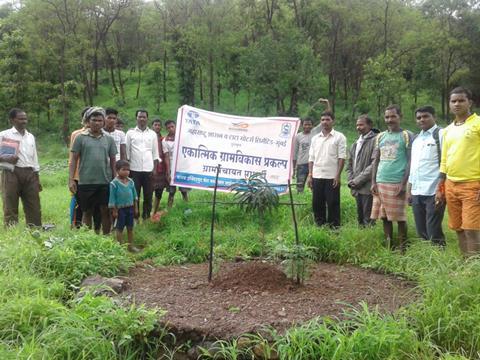Global automobile manufacturer plants fruit and nut trees to help develop farming communities in India

Tata Motors, in association with the BAIF Institute for Sustainable Livelihoods and Development (BISLD) have planted horticulture trees in Maharashtra as part of efforts to foster sustainable development.
Their pilot project utilised the Wadi model of sustainable agriculture in Jawhar tribal region of Palghar, Maharashtra to enhance the livelihoods of 2,000 farmers by increasing food security and generating sustainable income.
The project also provided healthcare facilities and shared technical know-how to improve the quality and the quantity of the produce.
Since the inception of this programme, these farmers have planted over 270,000 trees and conserved over 265ha of soil. Under this model, around 60 fruit trees (mainly mango and cashew) and 250 to 300 forestry trees (combination of timber, fodder and NTFP tree species) have been planted on 0.4ha of underutilized land owned by each participating family. Tata Motors has developed six nurseries in Jawhar to provide each family with saplings.
The model also addresses a wide range of environmental needs such as tree plantation, soil conservation, water resource development, moisture conservation, improved nutrition and quality of life.
Additionally, agricultural product aggregation, processing and marketing initiatives introduced into the current model have enhanced the capacity-building amongst farmers.
SJR Kutty, chief sustainability officer, Tata Motors said, the company firmly believes in the need to constantly work to bring a lasting positive impact to the community and the environment.
“Our Wadi model aims to promote sustainable livelihoods while strengthening environmental resilience and has achieved significant results over the last few years,” said Kutty.
“We will continue to work on this front in earnest, incorporating more meaningful changes to increase impact, continuing to tread decisively towards a more sustainable future.”
To continue efforts under the Wadi model, Tata Motors has committed to planting 500,000 trees and will be providing opportunities in existing project areas to farmers through BISLD.



